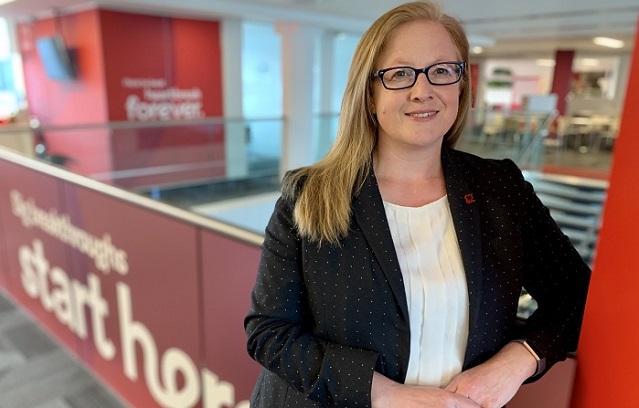

Our Chief Executive, Dr Charmaine Griffiths, discusses our commitment to becoming a more diverse and inclusive charity.

Like many of you, I was shocked and deeply saddened by the death of George Floyd.
This tragic event has ignited a global wave of support for the Black Lives Matter movement and forced many of us to ask ourselves what we can do to tackle racial discrimination and long embedded inequalities. It has made us question if we have become complacent when there is still so much to do.
It has encouraged individuals and organisations to take a long, hard look at whether their actions are truly addressing inequality. We at the British Heart Foundation are no different. Racial discrimination has no place here. As an organisation whose mission is to improve and save lives, and reduce inequality, we hold ourselves to the highest standards.
But we know we cannot tackle inequality without also improving ourselves. We need diversity and inclusion to be more than abstract concepts. We need it embedded in the experience of every person in our BHF team.
We're listening
For this to happen, we must constantly listen to our staff, volunteers and beneficiaries so we can shape a better way forward as an organisation. Over past days we’ve been listening to people from across our organisation, sharing their experiences and reflecting on how we can shape the BHF, together.
I’ve been grateful for the feedback, ideas and suggestions we’ve already received on the approach we should take to improve. We have begun our journey to become a more diverse and inclusive organisation.
Our diversity and inclusion group, Kaleidoscope, is comprised of staff from across the organisation working towards making us the best possible organisation for everyone who works and volunteers, whatever their background. After listening to our staff we are establishing a dedicated affinity group to look at racial equity. Affinity groups are self-organised groups of colleagues who hold common interests or belong to a an underrepresented group or minority – their aim is to, among other things, support professional development of members of the group, as well as support, advise and act as a voice for that community.
Tackling unfair disadvantages
We have already begun by collecting and reviewing data to better understand our diversity as an organisation and our gaps. We have commissioned experienced external advisers to help educate the BHF and help us shape our approach.
We have committed to new initiatives to improve our diversity and inclusion, such as unconscious bias training for our staff, and the setting up of more affinity groups to deliver our commitment to diversity and inclusion. We want to explore every new opportunity to support our people and tackle the unfair disadvantages they face because of their ethnicity, faith, gender or sexuality, or any other characteristic that may mean somebody experiences discrimination.
Our particular focus at this time is on racial equity. Our mission to beat heartbreak forever simply cannot be achieved without understanding and challenging inequality in outcomes for people from ethnic minority backgrounds.
There's always more to do
We are closely following the evidence on this issue, where a complex combination of biological and socioeconomic factors seem to be at play. Our research has already shown that a person’s ethnicity has a significant bearing on their chance of developing a heart or circulatory disease, and it is vital we understand the possible overlap between all these factors. All of this is why we are supporting a National Institute for Health Research and UK Research and Innovation call urging for more research into Covid-19 and ethnicity.
There will always be more an organisation can do, and we may not get everything right, every time. But I’m proud of our BHF team and I am committed to the steps we’re taking to become an inclusive organisation for everyone.
What we have on our side is a team of brave, compassionate colleagues and volunteers who are committed to improving what we do and how we work in line with our values. I’m determined that in the months and years to come the BHF will be a force for good in the fight for equality.
READ ABOUT OUR COVID-19 RESEARCH


